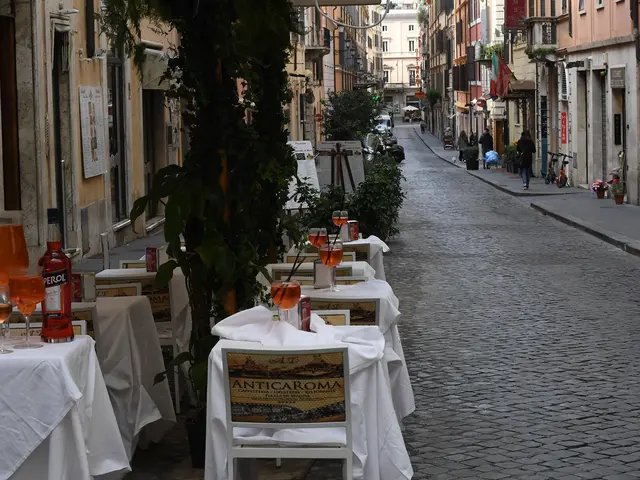COVID-19, the disease caused by the new coronavirus, continued to spread across Europe on Friday, and European governments were "responding strongly" with more measures to contain the virus.
The health ministers of the 27 European Union (EU) member states met in Brussels on Friday, calling for strengthened solidarity, cooperation and exchange of information in fighting the COVID-19 disease.
The ministers agreed to develop a coordinated approach to prevention and protection of people at risk, and establish coherent containment measures, including evidence-based advice concerning travel to and from risk areas.
EXTRAORDINARY MEASURES IN ITALY
In Italy, Europe's hardest-hit country, 3,916 people had been tested positive for the novel coronavirus since the epidemic first broke out here 15 days ago, the Civil Protection Department revealed on Friday evening.
The figure did not include recoveries or fatalities, which stood at 523 and 197, respectively. The cumulative number of COVID-19 cases in Italy totaled 4,636, compared with 3,858 on Thursday evening.
The Italian government had rolled out a raft of measures to combat the coronavirus, which was first reported among Italians in the northern Lombardy region on Feb. 21.
On Friday, organizers of the Formula E electric car racing championship announced to postpone the Rome E-Prix scheduled for April 4.
Starting on Thursday, all schools and universities in Italy would be closed through March 15. All major sporting events are held behind closed doors until April 3.
President Sergio Mattarella has urged Italians to face the emergency with "harmony and unity of purpose." "With no imprudence but also with no alarmism, we can and we should have confidence in the abilities and resources we have at our disposal," Mattarella said on Thursday in a speech to the nation.
"The Italian government has adopted extraordinary measures to contain COVID-19 reduce its social economic impact. I thank President Mattarella for his appeal to the nation," World Health Organization (WHO) Director-General Tedros Adhanom Ghebreyesus wrote on Twitter on Friday.
"Italy is responding strongly. WHO stands with you," Tedros tweeted.
FRANCE AND OTHER PARTS OF EUROPE
In France, the first European country to detect the COVID-19, 190 new infections were reported in the last 24 hours, bringing the country's total confirmed cases to 613. Nine people had died of COVID-19 so far.
French Prime Minister Edouard Philippe urged residents in two most affected regions -- l'Oise in northern France and Haut-Rhin near German borders -- to avoid non-necessary journeys to limit the spread of the COVID-19 disease.
Philippe announced that all nurseries and schools in the two regions will shut down for two weeks, starting from Monday. All gatherings will be limited "except those essential to social and democratic life," he added.
In Germany, the confirmed coronavirus cases rose to 639, the Robert Koch Institute, the country's infectious disease agency, reported on Friday evening. In Spain, the confirmed cases rose to 374, and a fifth person died of the coronavirus.
Britain has confirmed 47 new cases of COVID-19 on Friday, bringing the country's total number of infections to 163, according to the country's health authorities.
Earlier in the day, British Prime Minister Boris Johnson announced a new funding package of 46 million pounds (60 million U.S. dollars) for urgent work to find a coronavirus vaccine and develop a rapid test for the disease.
"We are ensuring the country is prepared for the current outbreak, guided by the science at every stage. But we also need to invest now in researching the vaccines that could help prevent future outbreaks," said Johnson.
Also on Friday, the confirmed cases increased to 181 in Switzerland. In Sweden, 43 more individuals were diagnosed with the virus, bringing the total cases to 137. Greece registered 45 confirmed cases, with 14 new infections in the day. Confirmed cases totaled 63 in Austria, with 21 new infections on Friday.
In other parts of Europe, the confirmed cases had risen to 18 in Ireland, 15 in Finland, 13 in Portugal, eight in Slovenia, five in Poland, and three in Luxembourg.
(ASIA PACIFIC DAILY)
 简体中文
简体中文




